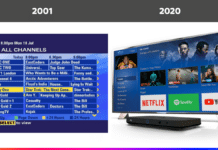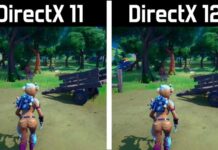
In today’s world, the internet has become an integral part of our daily lives, and selecting the right internet service provider (ISP) is crucial for a seamless online experience. This article will provide a detailed comparison of two of the leading ISPs in the United States, Verizon, and Cablevision. We understand that choosing the right provider can be a daunting task, which is why we have put together this comprehensive guide to help you make an informed decision. Read on to find out which provider is the perfect match for your needs.
Internet service has become a necessity in our daily lives, whether it’s for work, entertainment, or communication. With so many internet service providers available, it can be challenging to choose the right one that meets your needs and budget. Two of the most popular internet service providers in the US are Verizon and Cablevision.
Verizon is a well-known telecommunications company that offers various services, including internet, TV, and phone services. They have a reputation for providing fast and reliable internet speeds with a wide coverage area. Cablevision, on the other hand, is a regional cable TV and internet service provider primarily operating in the New York metropolitan area.
In this article, we will delve into the details of Verizon and Cablevision’s internet service offerings, comparing their internet speeds, plans, reliability, customer service, value, and other important factors to help you make an informed decision. Whether you’re looking for fast and reliable internet service for streaming, gaming, or working from home, we’ve got you covered. Let’s dive in and compare Verizon versus Cablevision!
Speed Comparison
Internet speed is an essential factor that can make or break your internet experience. In this section, we will provide a comprehensive comparison of internet speeds between Verizon and Cablevision.
Verizon offers a range of internet plans that provide different internet speeds, starting from 100 Mbps and going up to 940 Mbps. On the other hand, Cablevision offers internet speeds ranging from 25 Mbps to 940 Mbps, depending on the plan you choose.
To put these speeds in perspective, let’s take an example. With a speed of 100 Mbps, you can stream HD content without buffering, download large files quickly, and play online games without any lag. However, if you have multiple devices connected to the internet, and you engage in data-intensive activities like video conferencing or 4K streaming, you might require a higher internet speed to ensure a smooth and uninterrupted internet experience.
In general, the download speed is the most important factor for most users, as it determines how quickly you can download content from the internet. The upload speed, on the other hand, is important if you frequently upload large files, engage in video conferencing, or play online games.
Verizon and Cablevision both offer impressive internet speeds, but their speed plans may vary depending on the location. Therefore, we recommend checking with the providers for the exact speeds and availability of the plans in your area.
Plan Differences
When it comes to choosing an internet service provider, one of the most important factors to consider is the range of plans they offer. In this section, we’ll compare the different internet plans offered by Verizon and Cablevision, and explain their pricing structures, so you can make an informed decision.
Verizon offers a range of internet plans, including their Fios Gigabit Connection plan, which boasts download speeds of up to 940 Mbps and upload speeds of up to 880 Mbps. This plan is ideal for heavy internet users who require fast and reliable internet speeds for gaming, streaming, and other data-intensive activities. Verizon also offers a Fios 200/200 plan, which offers download and upload speeds of up to 200 Mbps, and a Fios 400/400 plan, which offers download and upload speeds of up to 400 Mbps.
Cablevision offers a range of internet plans as well, including their Optimum 400 plan, which offers download speeds of up to 400 Mbps and upload speeds of up to 40 Mbps. They also offer the Optimum 200 plan, which offers download speeds of up to 200 Mbps and upload speeds of up to 35 Mbps, and the Optimum 100 plan, which offers download speeds of up to 100 Mbps and upload speeds of up to 35 Mbps.
The pricing structures of these plans can vary depending on location, but in general, Verizon’s plans tend to be more expensive than Cablevision’s. For example, the Fios Gigabit Connection plan can cost upwards of $80 per month, while Cablevision’s Optimum 400 plan starts at around $60 per month. Additionally, both providers may charge additional fees and taxes, such as equipment rental fees or installation fees.
Ultimately, the best plan for you will depend on your internet usage habits and budget. If you require fast and reliable internet speeds for data-intensive activities, such as gaming or streaming, you may want to opt for Verizon’s Fios Gigabit Connection plan. However, if you are on a budget, Cablevision’s Optimum 400 plan may be a better fit for your needs. It’s important to carefully consider the features and pricing of each plan to make the right choice for you.
Reliability and Customer Service
When it comes to internet service, reliability, and customer service are important factors to consider. In this section, we’ll compare Verizon and Cablevision in terms of their reliability and customer service.
Reliability
Internet service reliability refers to the consistency and stability of your connection. Both Verizon and Cablevision offer reliable internet service, but there are some differences to note. Verizon’s internet service is delivered through a fiber optic network, which is known for providing fast and reliable service. Cablevision, on the other hand, uses a cable network, which may be more prone to outages and slowdowns during peak usage times.
Customer Service
No matter how reliable the internet service is, issues can still arise from time to time. That’s why it’s important to have good customer service to help resolve any issues that may arise. Verizon and Cablevision both offer customer service through phone, email, and online chat. However, there are some differences in the quality of customer service between the two providers.
According to the American Customer Satisfaction Index (ACSI), Verizon has consistently received higher customer service ratings than Cablevision. In fact, Verizon has been ranked as the top internet service provider in terms of customer satisfaction for several years in a row. Cablevision, on the other hand, has received lower customer service ratings, with some customers reporting long wait times and difficulty resolving issues.
It’s important to note that customer service experiences can vary depending on the individual customer and the specific issue they are experiencing. However, the ACSI ratings provide a general idea of the customer service experiences of Verizon and Cablevision customers.
In conclusion, when it comes to reliability and customer service, Verizon appears to have an edge over Cablevision. However, it’s important to weigh these factors along with other considerations, such as pricing and plan options, when choosing an internet service provider.
Value for Money
When it comes to choosing an internet service provider, value for money is an important factor to consider. In this section, we’ll compare Verizon and Cablevision’s value for money to help you make an informed decision.
Verizon and Cablevision both offer a range of internet plans at varying price points. The plans typically include different internet speeds and additional features such as Wi-Fi routers, but also differ in pricing and contract terms.
To determine the overall value of each provider, it’s important to consider the cost of the plan relative to the internet speed and additional features offered. It’s also important to keep in mind that additional fees, such as installation and equipment fees, may apply.
Verizon offers plans starting at $39.99 per month for speeds up to 200 Mbps, up to $79.99 per month for speeds up to 940 Mbps. These plans also come with a two-year contract term and a $99.99 installation fee. However, Verizon does offer a discount on equipment fees when you sign up for their Auto Pay and paper-free billing program. Verizon also provides a two-year price guarantee, meaning that the price you pay for your plan will not change during your contract period.
On the other hand, Cablevision’s plans start at $39.99 per month for speeds up to 200 Mbps, up to $69.99 per month for speeds up to 940 Mbps. Unlike Verizon, Cablevision does not require a contract but does charge an installation fee of $99.99. However, Cablevision does offer a range of additional features with their plans, including a Wi-Fi router and free access to Optimum Wi-Fi hotspots.
In terms of overall value, both Verizon and Cablevision offer competitive pricing for their plans, but it ultimately depends on your specific needs and preferences. If you are looking for a provider with a two-year price guarantee and are willing to commit to a contract, Verizon may be the better option for you. However, if you prefer a provider that doesn’t require a contract and offers additional features such as Wi-Fi routers and access to Wi-Fi hotspots, Cablevision may be the better choice.
Overall, it’s important to carefully consider your options and determine what features and benefits are most important to you when choosing an internet service provider.
Availability and Installation
When it comes to selecting an internet service provider, availability and installation are two crucial factors to consider. Before you can subscribe to any internet service, you need to ensure that the provider you want to go with is available in your area. In this section, we will discuss the availability and installation process of Verizon and Cablevision.
Availability
Verizon and Cablevision offer internet services in various regions across the United States. However, their availability varies depending on your location. Therefore, it is crucial to check whether the provider you want is available in your area before making any commitment.
To check for availability, you can visit the official websites of Verizon and Cablevision, where you will find a coverage map. By entering your zip code, you can determine whether the providers are available in your area.
Installation
The installation process for Verizon and Cablevision is relatively straightforward, and in most cases, the providers offer self-installation options. This means that you can install the internet service yourself by following the instructions provided by the provider. However, if you are not confident about installing the service yourself, you can opt for professional installation.
Verizon provides installation services through its “Verizon TechSure” program. This program includes installation services, equipment setup, and in-home Wi-Fi optimization. The installation cost varies depending on the package you select, and the technician will guide you through the process.
Cablevision, on the other hand, offers professional installation services for an additional fee. The provider will send a technician to your home to install the service and set up the necessary equipment.
Installation times may vary depending on the provider and the availability of the technician. However, most installations are completed within a few hours, and you can start using the internet service immediately.
Choosing the right internet service provider is critical, and availability and installation are essential factors to consider. Before making any commitment, ensure that the provider you want is available in your area and that the installation process is convenient for you. By understanding the availability and installation process of Verizon and Cablevision, you can make an informed decision and select the provider that meets your needs.
Contract Terms and Promotions
When comparing Verizon and Cablevision internet services, one important factor to consider is the contract terms and promotional offers available from each provider.
Verizon offers internet service on a two-year contract with a price-lock guarantee. This means that the monthly rate you pay for the service will remain the same for the duration of your contract, regardless of any price increases that may occur during that time. However, if you choose to terminate your contract early, you may be subject to early termination fees.
Cablevision, on the other hand, offers internet service without a contract, so you can cancel or change your service at any time without penalty. This makes Cablevision a good option for those who want flexibility in their internet service.
In terms of promotional offers, both Verizon and Cablevision offer discounts for new customers. Verizon often offers promotional deals such as discounted rates or waived installation fees, while Cablevision offers similar discounts and also provides additional incentives like free Wi-Fi hotspots.
It’s important to note that these promotional offers may vary depending on your location and the specific plan you choose. It’s always a good idea to check the provider’s website or contact customer service directly to find out what promotions are currently available in your area.
When considering contract terms and promotional offers, it’s important to weigh the benefits of a price-lock guarantee versus the flexibility of a contract-free option. Additionally, it’s important to consider the long-term costs and savings associated with any promotional offers and discounts offered by each provider.
Equipment Quality and Data Caps
When it comes to internet service, equipment quality, and data caps are important factors to consider. In this section, we’ll compare Verizon and Cablevision in terms of the quality of their equipment and any data caps that they may have.
Verizon provides customers with high-quality equipment, including routers and modems that are designed to deliver reliable internet speeds. In addition, Verizon offers a self-installation option for customers who want to set up their own equipment. This can be a convenient option for customers who are tech-savvy and want to avoid paying installation fees.
Cablevision also provides high-quality equipment to its customers, including a modem and router that are designed to work together to deliver fast and reliable internet speeds. Like Verizon, Cablevision also offers a self-installation option for customers who want to set up their own equipment.
When it comes to data caps, Verizon does not currently impose any data limits on its internet plans, which means that customers can use as much data as they want without incurring any additional charges. Cablevision, on the other hand, does have data caps on some of its plans, which means that customers may be charged extra fees if they exceed their monthly data limit.
It’s important to note that data caps can have a significant impact on your internet usage, especially if you’re a heavy internet user who streams a lot of videos or downloads large files. If you’re considering a plan with data caps, it’s important to carefully consider your internet usage habits and choose a plan that provides enough data to meet your needs.
In summary, when it comes to equipment quality, both Verizon and Cablevision provide high-quality equipment that is designed to deliver fast and reliable internet speeds. However, when it comes to data caps, Verizon is the better choice for customers who want to avoid any limitations on their internet usage.
Bundles and Additional Services
When it comes to choosing an internet service provider, many people are looking for more than just internet access. That’s where bundles and additional services come in. In this section, we’ll compare the bundle options and additional services offered by Verizon and Cablevision.
Bundles
Both Verizon and Cablevision offer bundle options that can save you money on your monthly bill. Verizon offers bundles with their Fios TV service, which includes access to a range of channels and On Demand options. Cablevision offers Optimum TV, which also includes access to a variety of channels, as well as On Demand content and DVR options.
Additional Services
In addition to internet and TV services, both providers offer a range of additional services that may be of interest. Verizon offers home phone and home security services, while Cablevision offers home phone and smart home services.
It’s important to note that the availability of these additional services may vary depending on your location. Be sure to check with each provider to see what services are available in your area.
Overall, when it comes to bundles and additional services, both Verizon and Cablevision offer a good range of options. Be sure to compare the prices and features of each to determine which provider offers the best value for your needs.
In Crux
In conclusion, choosing the right internet service provider is crucial to having a positive online experience. After our comprehensive comparison, it is evident that Verizon and Cablevision have their unique strengths and weaknesses. Verizon offers faster internet speeds and better reliability, while Cablevision offers more value for money with its competitive pricing and bundled services.
When making a decision, it’s important to consider your specific needs and budget. If you prioritize speed and reliability, then Verizon may be the better option for you. However, if you’re looking for more affordable pricing and bundled services, then Cablevision may be a better fit.
In either case, we recommend checking availability and contract terms in your area before making a final decision. Consider the installation process and equipment quality, as well as any additional fees or charges associated with each provider.
Ultimately, choosing the right internet service provider is a personal decision that depends on your specific needs and preferences. By keeping these factors in mind, you can make an informed decision that will provide you with a positive online experience for years to come.
[WPSM_AC id=967]
























